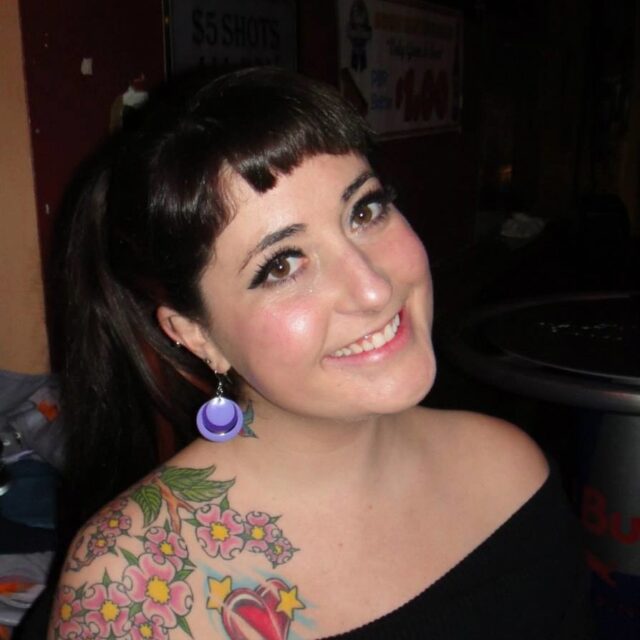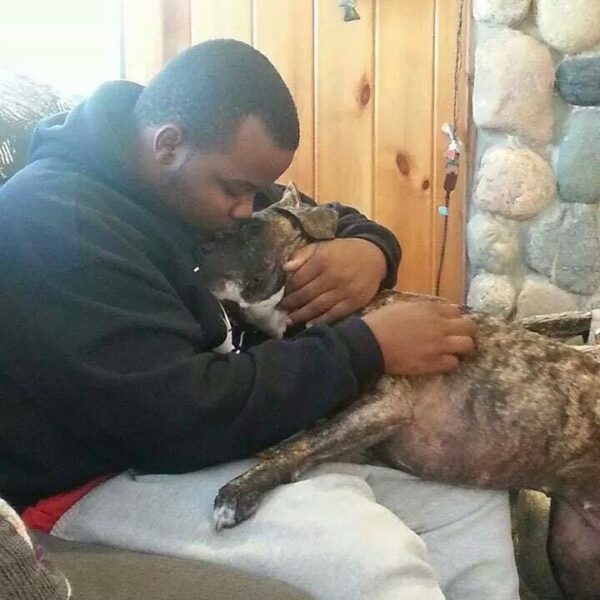My younger sister, Sarah Virginia Carr Browder, was fiercely protective, loyal, compassionate, admired and loved by many. She was living an authentic life and encouraged others to do the same, simply by loving them for who they are. She gave the most complete hugs to all, laughed easily and loudly and made the world more beautiful with her presence. She loved animals, she enjoyed reading and she was a talented artist who painted many treasures, among them over forty portraits of friends and family. She was affectionately given the nickname “Sassy” by her twin brother, Ben, when they were toddlers, and the name stuck into adulthood.
In 2011, when Sarah was attending beauty school, a charming Marine came along who she had vaguely known as a child. He swept Sarah off her feet and, not long after, he asked her to marry him.
How quickly their romance progressed was worrisome, to be sure, but he seemed like a reasonable guy and convinced Sarah, “If it doesn’t work out, we’ll just get a divorce.” Although she had dated several young men, she did not think she would ever get married. But Sarah said this man was different and that she was in love. After a short courtship, they married at a Justice of the Peace in August of 2011.

During their first year of marriage, Sarah’s new husband began to show signs of abuse. She confided in me that he liked to pick fights with people, that he had been disciplined for choking a fellow Marine and, perhaps most alarming, that he had a gun. But he didn’t just own a gun, he flaunted it, carrying it in public for “protection.”
Sarah was living in her home in North Carolina while her husband lived a few hours away on a military base. If Sarah did not call him at a specific time each day, he began bombarding her with phone calls. He threatened to kill himself if she left him. He kicked his animals. He forced her to have a joint Facebook account with him and demanded passwords for her email accounts. He was trying everything he could to control her when all she was doing was trying to live. She wanted him to go to counseling and even made appointments, but he refused.
Finally, after nearly a year of marriage, Sarah told me and the rest of our family that she was considering getting a divorce due to his abusive behavior. We continued to support her but never could have predicted the fate that awaited my resilient, beautiful and strong sister. We had no idea that the moment a victim of abuse reveals her plans to leave is when she is most at risk.

On September 23, 2012, Sarah was studying for her final practical to become a licensed hair stylist and told her husband not to come visit that weekend, but he came anyway. She told him that she wanted out of the marriage. After a horrific night of abuse, as witnessed by a friend who was able to flee, he shot Sarah twice—once in the neck and once in the shoulder—as she was running away from his parents’ home. Sarah was found across the street by a newspaper delivery woman and taken to the hospital. Her killer died in his parents’ driveway from a self-inflicted gunshot wound.
For five days, my family and I sat with Sarah in the intensive care unit. Day after day, we watched her suffer as she slipped in and out of consciousness, unable to talk, unable to breathe, unable to move. We could see the fear in her eyes.
Sarah left this world on September 27, 2012. She donated her organs and saved five other lives. Her death at the age of 29 was the product of the lethal combination of domestic violence and easy access to a gun by a domestic abuser. Sarah became one of the 50 women in America killed every single month by an intimate partner.
Her death at the age of 29 was the product of the lethal combination of domestic violence and easy access to a gun by a domestic abuser.
Since Sarah’s death, my family and I have been painfully enlightened to the fatal connection between domestic abuse and gun violence. The presence of a gun in a domestic violence situation makes it five times more likely that the victim will be killed. It makes no difference whether the owner of the gun is the perpetrator or the victim.
Domestic violence is a red flag for future violence, as demonstrated by the Orlando Pulse Nightclub and Fort Lauderdale Airport mass shooters, the deadly Charlottesville driver and many more. In fact, 57 percent of mass shootings are carried out by domestic violence offenders.
Federal law technically prohibits convicted abusers from buying and owning guns, but substantial loopholes in state laws allow them to skirt restrictions. An Everytown for Gun Safety analysis found that in states that require criminal background checks for all handgun sales, 47 percent fewer women are shot to death by their intimate partners.
The traumatic and complicated death of my sister as a result of domestic gun violence has significantly influenced my inner and outer life. I, like other people in my family, have been forced to fight post-traumatic stress, including flashbacks and everyday triggers, for years following her death.
Today, my parents and I volunteer for Moms Demand Action for Gun Sense in America, as well as local domestic abuse organizations. We do so in an effort to spare others the heartache and trauma my sister and her loved ones have endured. I now strive harder for education, community-building and fighting for laws and programs that keep us and our loved ones safer.
In the words of Maya Angelou, “Do the best you can until you know better. Then, when you know better, do better.” We must do better for my sister, other families affected by domestic violence and gun violence, our loved ones, our children, the most vulnerable among us and for a safer and happier future for all. Sarah’s love and legacy lives on.
If you or someone you know is in crisis, contact the National Domestic Violence Hotline at 1-800-799-SAFE (7233) for free and confidential emotional support from a local crisis center, 24 hours a day, 7 days a week.





